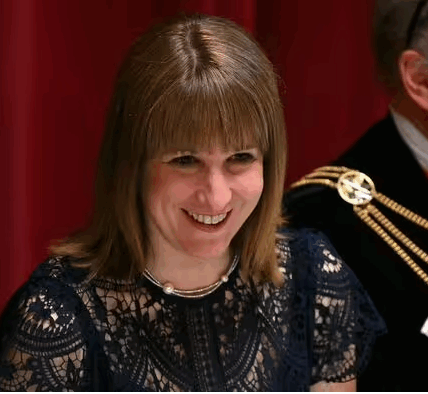Forecasters have warned the mercury could rise to up to 34C this weekend.

Sunbathers enjoy the heat in St James’ Park on June 19, 2025 in Lo (Image: Getty Images)
It’s no secret that Britons love talking about the weather but while that topic of conversation remains a constant, the same can’t be said for the climate itself. Punters have spent the week soaking in the sunshine while downing crisp G&Ts and pouring generous jugs of chilled Pimm’s
Racegoers at Royal Ascot have sizzled in their top hat and tails while Glastonbury revellers next week could face the highest temperatures ever for the festival. Fans could be at breaking point while basking in sunshine over Centre Court later this month, with strawberries withering and cream curdling in the cruel heat engulfing SW19.

People enjoy the sunshine on Jubilee Beach in Southend (Image: PA)
The mercury isn’t the only thing that’s been rising. The hidden costs of extreme weather is ballooning – and it’s impacting everything from produce prices to premiums.
Shoppers at supermarket tills later this year could pay the price for the blistering 34C expected this week.
This is because farmers’ crops are failing and the grass to feed their animals is not growing – with experts warning the UK faces one of the worst harvests on record.
Queen Victoria was on the throne when England last experienced such a dry spring, with the 2025 season claiming the title of sunniest spring on record for the UK.
Over the coming months, combine harvesters will be rolling in fields across the country as arable farmers produce the food, fibre and energy that fuels the nation.
But the production of wheat, barley, oats and oilseed rape is already expected to be near all-time lows because of the hottest spring on record and very dry conditions, experts have predicted.
Drought – which has already been declared in two English regions – significantly impacts food prices by reducing crop yields and increasing production costs.
The likelihood of more places getting a drought declaration is rising as temperatures edge higher.
In one year, Mother Nature wields the most powerful tools in her arsenal – fire, water and heat – against humanity.
“Record breaking”, “remarkable” and “unprecedented” have all become a standard part of the lexicon when talking about the weather.
Climate change – mainly caused by the burning of fossil fuels like oil, gas and coal which release carbon dioxide and heat up the planet – is hitting people’s pockets and the planet.
Increased heat waves have led to higher incidences of heatstroke and respiratory issues.
Just this week, a rare amber heat health warning was issued across England, with the UK Health Security Agency saying a rise in deaths among vulnerable groups is “likely”.
One estimate suggests that, on average, an additional cost to the NHS of at least £20.8 million is incurred each year to treat excess admissions associated with extreme temperatures.
Extreme weather events can destroy habitats and push vulnerable species toward extinction.
Storms and flooding cause billions in damages to buildings, roads and other vital infrastructure.
Rising claims from extreme weather events challenge insurance industries and increase premiums.
Sustained heat, floods and heavy rainfall could also see insurers hit with further increased costs, with subsidence-related insurance costs swelling to over £1.9billion by 2030 according to new analysis by PricewaterhouseCoopers.

A woman eats an ice cream while walking over Westminster Bridge (Image: Getty Images)
There could also be bad news in store for gardeners as hosepipe bans beckon.
Many will remember the summer of 1976 when a minister for drought was appointed and, as reservoirs dried out, gardeners were banned from using hosepipes. These restrictions were enforced by patrols which toured the streets to ensure compliance.
The more recent summer of 2022 was not a far throw from those scenes when a hosepipe ban was introduced in parts of the UK after record-breaking temperatures of 40C were recorded – a temperature that the Met Office this week warned could become more common because of climate change.
Following that period of extreme heat three years ago, the months from October 2022 to March 2024 marked the wettest 18-month period on record for England.
Over £1billion was knocked off arable farm incomes following the deluge of rain that winter, the Energy and Climate Intelligence Unit (ECIU) said.
Extreme weather is testing the financial resilience of global produce growers to breaking point and jeopardising the nation’s food security.
And it is impacting the cost of shoppers’ favourite foods in supermarket aisles across Britain.
Consumers are being hit by higher chocolate prices because of climate change-driven extreme weather, particularly around Easter and Valentine’s Day.
Chocolate costs rose at the fastest pace on record in May, statistics from the Office for National Statistics showed.
The average price per kilo of cocoa beans imported into the UK rose 32% over the last three years, the ECIU said.
This is where the government in the UK, and others abroad, step in with plans to mitigate and adapt for the changing weather.
The “politics of net zero” is a contentious battleground surrounding the effort to achieve net zero greenhouse gas emissions by a specific date.
Net zero means balancing the amount of greenhouse gases produced with the amount removed from the atmosphere.
Scientists say that hitting the target will significantly impact the weather by slowing down global warming and reducing the frequency and intensity of extreme weather events
But reaching the balance involves science, economic realities, public perceptions and diverse political priorities.
In the one corner, we have net zero sceptics Tory leader Kemi Badenoch and Reform UK’s Nigel Farage.
And on the other side of the Westminster boxing ring, battling for the policy, is Labour, the Greens and the Liberal Democrats.
Net zero is a political “hot potato” with Mrs Badenoch insisting it’s “impossible” for the UK to meet its legally binding net zero target by 2050 – a goal set by a previous Conservative government.
Meanwhile rivals Reform UK have pledged to scrap “net stupid zero” policies in its entirety if they come to power – making the issue a key issue after immigration.
They blame the policy for rocketing energy bills, often reminding the public that the UK has the “most expensive energy prices in the world”.
This week, Mr Farage suggested net zero could become the “next Brexit” and be the issue which wins his party the next election.
Britain is “deindustrialising” as energy prices force up the costs on families and businesses, the architect of Brexit added.
He fired a shot at former Conservative leader Boris Johnson, saying he was perhaps the “worst of the lot” when it came to pursuing net zero with his ambition for the UK to become the “Saudi Arabia” of wind.
As with the UK’s exit from the European Union, it will be voters who may set the country on a different path.
At least 61% of people either strongly supported or somewhat supported the government’s commitment to cutting carbon emissions to net zero by 2050, a YouGov poll from March found.
Meanwhile 24% said they somewhat opposed or strongly opposed it and 15% said they didn’t know.
A man who has made no secret of where he stands in the debate is US President Donald Trump who has ripped into Labour’s net zero targets while pushing Keir Starmer to open up the North Sea.
His message to other leaders looking to follow his lead? “Drill, baby, drill”.
In Paris in 2015, nearly 200 countries agreed on a series of measures to tackle climate change which were designed to avoid some of the worst consequences of rising temperatures.
On his first day in office this year, President Trump signed an executive order to withdraw the United States from the Paris Agreement for the second time.
Mr Farage, who many believe is in prime position to replace Sir Keir as PM when Britons next head to the ballot box, could choose to follow his lead.
But in the immediate future, although the mercury will dip slightly next week, the debate around net zero and the weather shows no signs of waning.


